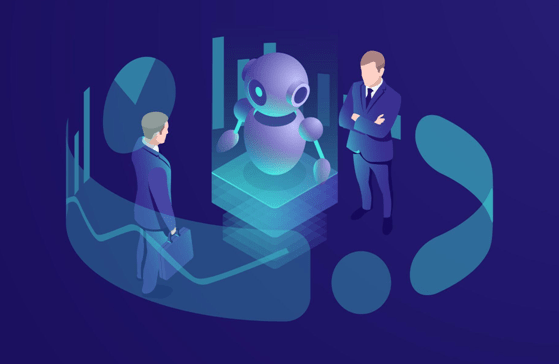
Artificial Intelligence (AI) and Machine Learning (ML) have significantly impacted various industries, including mobile app development. Their integration into mobile app development has led to innovative solutions, enhanced user experiences, and improved efficiency. Here are some key roles of AI and ML in mobile app development:
- Personalization: AI and ML algorithms analyze user behavior, preferences, and interactions with the app to offer personalized content, recommendations, and suggestions. This helps increase user engagement and retention by providing relevant and tailored experiences.
- Predictive Analytics: AI and ML enable predictive analytics in mobile apps. They can anticipate user actions, such as predicting the next word while typing, suggesting products based on past purchases, or forecasting user behavior to optimize app performance.
- Natural Language Processing (NLP): AI-powered NLP enables voice recognition, language translation, sentiment analysis, and chatbots in mobile apps. This fosters seamless communication and enhances user interactions within the app.
- Image and Object Recognition: AI-based image recognition and object detection can be used to identify objects, scenes, and text from images captured by a mobile device. This technology finds applications in augmented reality, image-based search, and security-related features.
- App Security: AI and ML algorithms can help detect and prevent security threats, such as malware, data breaches, and unauthorized access. They can analyze patterns and user behaviors to identify potential risks and take preventive measures.
- App Testing and Optimization: ML can be used for automated testing and optimization of mobile apps. It can analyze user feedback, crash reports, and performance data to identify issues and suggest improvements, ultimately enhancing the app’s stability and performance.
- Natural User Interfaces: AI can enhance mobile app interfaces by enabling gesture recognition, voice commands, and facial recognition. This creates a more intuitive and interactive user experience.
- Automated Customer Support: AI-driven chatbots and virtual assistants can provide instant and round-the-clock customer support, addressing user queries and issues without human intervention.
- App Performance Optimization: ML algorithms can analyze data related to device performance, network conditions, and user behavior to optimize the app’s performance, reduce battery consumption, and enhance overall user experience.
- Data Analysis and Insights: AI and ML can analyze vast amounts of user data to provide valuable insights into user behavior, preferences, and trends. These insights can guide app developers in making data-driven decisions for future updates and improvements.
In conclusion, AI and ML have revolutionized mobile app development by bringing in a wide array of capabilities, from personalization and predictive analytics to enhanced security and user experience. As technology continues to advance, the role of AI and ML in mobile app development will likely become even more significant. Developers and businesses are increasingly leveraging these technologies to stay competitive and provide cutting-edge mobile experiences to their users.
You might also like our TUTEZONE section which contains exclusive tutorials on how you can make your life simpler using technology.




